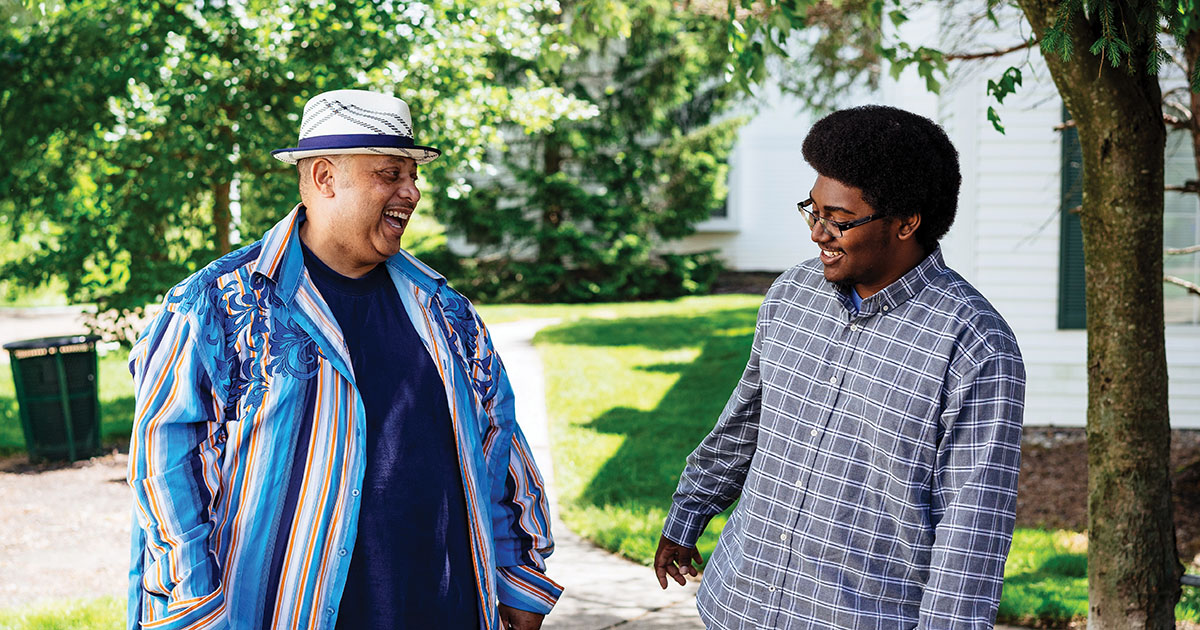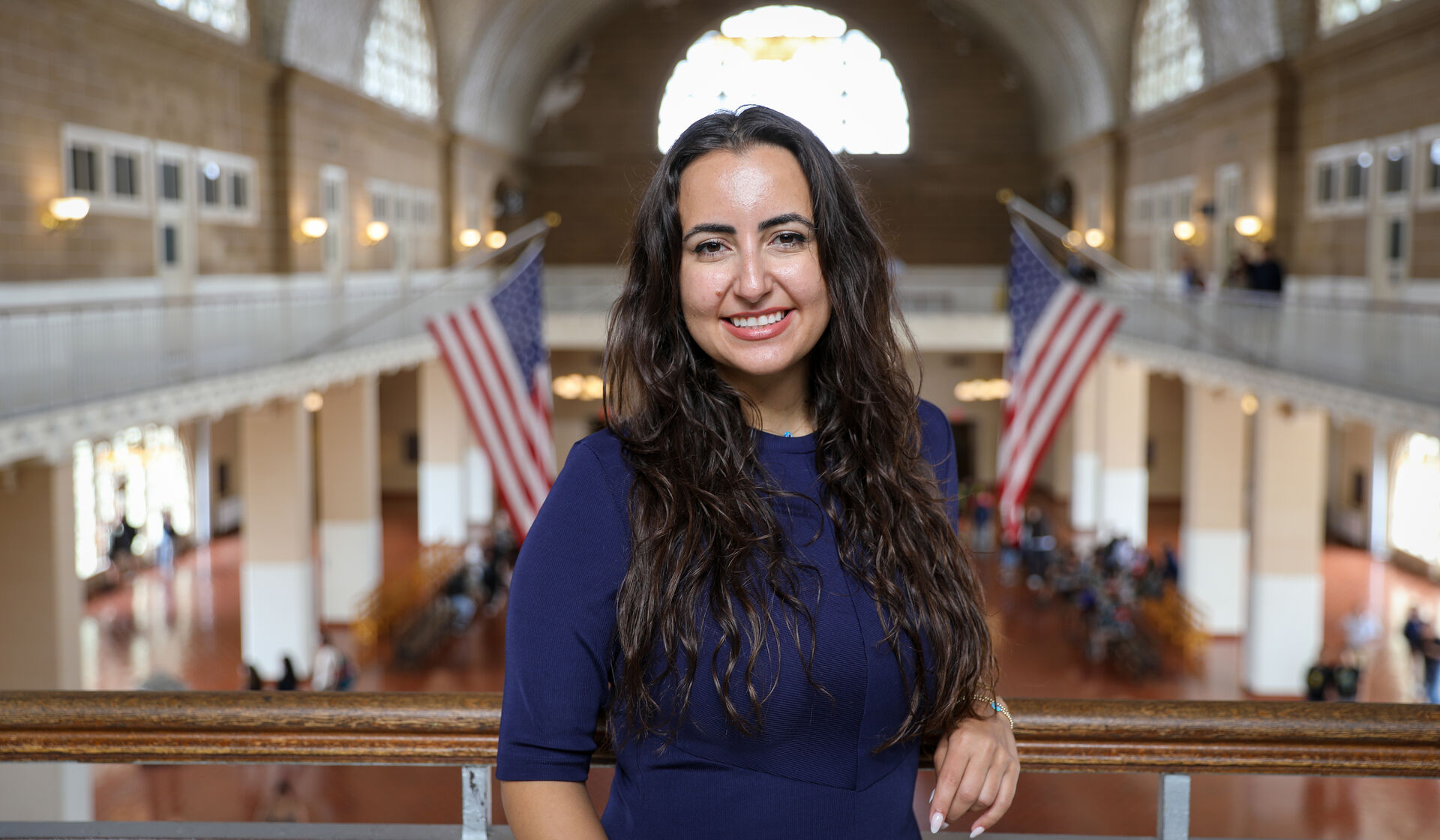The day started out uneventfully. Anthony Davis and his family planned to do some back-to-school shopping at a local discount store. Five of them—Anthony and his father, mother, little brother, and grandmother—piled into the car while his grandfather Herman, recovering at home from cancer treatment, remained behind. Anthony made sure his grandfather had a Pepsi and was comfortable before saying “I love you” and heading out the door.
After about an hour, Anthony’s father got a text from a friend, then a phone call from a neighbor. Their house—whose sole occupant at the moment was Anthony’s frail grandfather—was on fire. The family raced back as quickly as possible.
“We saw the smoke coming up from the house a few blocks away,” Anthony says. “Everyone was in panic, disbelief.” When they arrived, emergency vehicles were already battling the blaze.
Anthony remembers seemingly random details: How hot it was that day in July 2012. Trying to console his grandmother Jessie amid the confusion. An officer telling someone to get Anthony’s father a glass of water because it looked like he would pass out. Other family members arriving and gathering at the backyard picnic table.
He also remembers his father, Anthony Sr., being asked to identify his grandfather’s body after it was pulled from the home.
The day would be a tragic turning point for the family. But buried beneath the ashes were seeds of hope that the family would nurture together and that would allow Anthony to realize the family’s dream of sending him to college.
The Davis family was already experiencing more than its share of troubles before the fire. When he was 15, Anthony left his father, mother, Alicia, and brother, Aaron, in Belleville, Michigan, to move about 20 miles away to Detroit so he could help his grandmother care for his ailing grandfather. While it did add stress as he balanced caretaking with high school studies, Anthony considered it an honor.
“Family are the people that you really hold close,” he says. “And no matter what happens, even if it requires your own sacrifice, you put those people ahead of you.”
A year later, the rest of Anthony’s family moved into the house in Detroit when they suffered financial setbacks. Then came the fire, just as Anthony was preparing for his senior year of high school. His father remembers the family’s silence as they settled into a hotel room the night of the fire and the growing awareness of the burdens ahead.
“But I couldn’t let my sons, I couldn’t let my wife, I couldn’t let my mother see me having so much uncertainty about what our next steps were,” says Anthony Sr. “Usually, we would all look at my dad. My dad had the answers. But now, I was entrusted with the responsibility to have all of those answers.” Despite the trauma—the fire and loss, financial problems, moves into a series of motels—the family knew one of those answers: Anthony would continue on to college.
“My family tried their best, even my little brother,” says Anthony. “They tried their best to support me in my endeavors. While I didn’t see it at the time, they saw the potential.”
His father says college wasn’t a choice for Anthony. “It was a must. We had a tragic moment that occurred in our life. We didn’t need to add to that. We needed to have a plan, and that plan needed to be in place, and we needed to make progress. And getting him into school, letting him start, it was part of that progress,” says Anthony Sr. “Our life was forever changed, but at the same time, you can’t take away from your kids.”
So they were thrilled when he received his acceptance into U-M, making him the first in his family to attend college. However, with their income consumed by basic needs such as food and shelter, the reality of a tuition bill seemed insurmountable.
But Anthony Sr. took up the challenge and went looking for money—literally. He read a lot, made telephone calls, and even paid personal visits to people on campus who could help. “It was imperative that I did everything I could do as a father to make sure that he was there and he reaped the benefits of being a University of Michigan student.”
First, he secured a Kessler Presidential Scholarship from LSA. And then he heard about the Alumni Association’s LEAD Scholars Program. He stopped by the Alumni Center and eventually secured a $5,000 scholarship. With these two four-year sources of funding, his son’s freshman year tuition was covered. A variety of smaller, nonrenewable scholarships provided funds for room and board.
Anthony vividly remembers his excitement during that first year in Ann Arbor—a feeling of being able to take on the world. He also remembers the support he received from the LEAD program. Beyond financial support, LEAD provided him with access to professional development, alumni role models, and a community of peers.
“When I got to the University, I just thought this was going to be some kind of simple program—you go in, you say hello, and then you leave, just to say you appreciate the money,” says Anthony. “But the mentorship that I got in the LEAD Scholars Program, it far outweighs the monetary value.”
Unfortunately, his family’s financial challenges continued, and by the winter 2017 semester, the financial assistance wasn’t enough to cover tuition.
“I just didn’t have enough money to pay for the next semester. That was honestly the low point of my college career.” He missed it all: the campus, the intellectual challenge, and the opportunity to better himself. But the silver lining is that, once the Alumni Association learned of his travails, it established a LEAD emergency fund to help scholars who need assistance. Anthony was the inspiration.
When he returned to campus in fall 2017 for his senior year, his drive and passion were reignited. “I want to actively learn,” he says, “all the time, learn from everybody, anybody.”
This summer, Anthony is part of U-M’s Development Summer Internship Program, which provides a 12-week paid internship in fundraising. Having been a recipient of aid, he wants to pursue a career in philanthropy so he can give back.
And his family continues to persevere.
“Yeah, he had a lot of difficult times,” says Anthony Sr. “He’s faced with a lot of challenges that other kids don’t have. Some kids can just go to school and not worry about how their family is going to live or eat. But he wasn’t that fortunate. But he has to face that, and he did face it. And he fought through it.”
Anthony Davis is just one of many U-M students who benefit from the LEAD Scholars Program, which provides scholarships to African-American, Hispanic, and Native American students who have been accepted into U-M. Visit umalumni.com/LEAD to learn how you can support deserving students like Anthony.
For more on Anthony and his family, view the video below.
Sharon Morioka, ’84, MA’86, is the editor of Michigan Alumnus.





